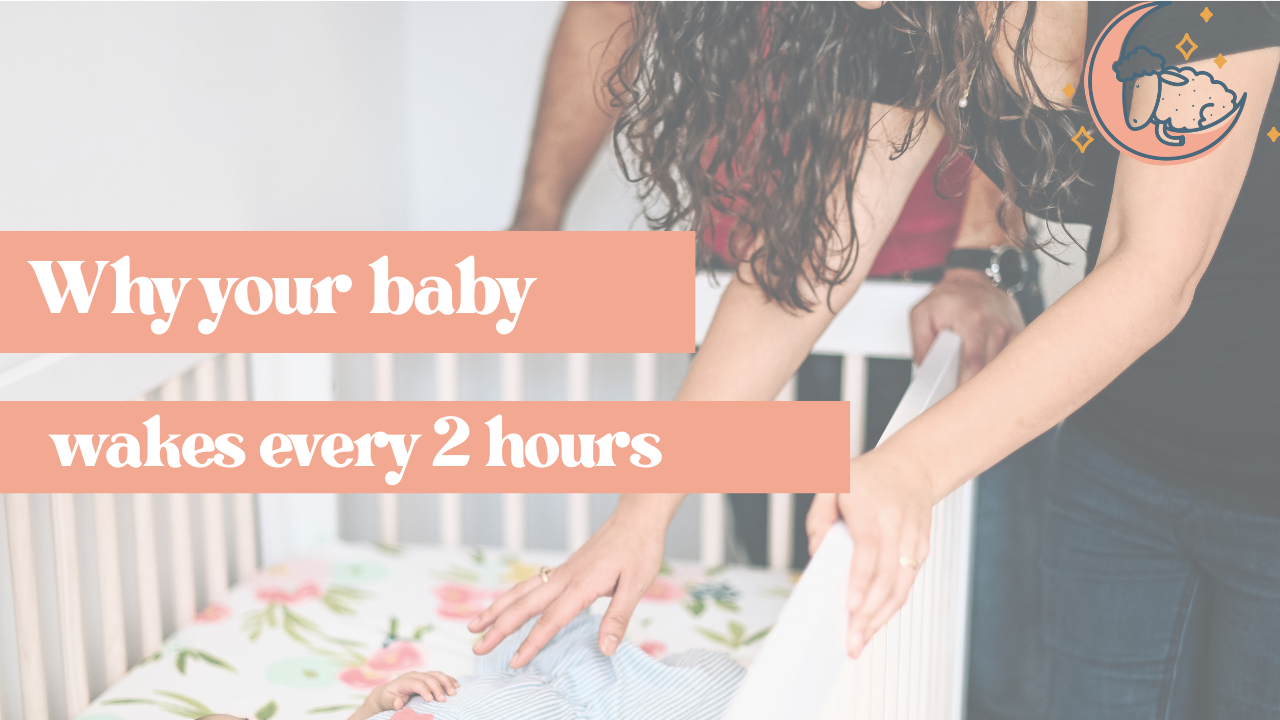Why Your Baby Wakes Every 2 Hours (And How to Fix It Responsively)
Apr 02, 2025
Another sleepless night? You’re up at 12, 2, 4... wondering if this is just your life now. The good news? It doesn't have to be.
You're not failing. You're not alone. Thousands of moms ask the same question at 2 AM while scrolling through baby forums:
"Why does my baby wake every 2 hours?"
The even better news? Science (and thousands of well-rested clients) tell us this is solvable — without cry-it-out. In this post, you’ll learn:
-
Why frequent wakings happen
-
What might be reinforcing them without you realizing
-
How to help your baby sleep better in a gentle, loving, and effective way
Sleep Cycles in Babies
Babies experience shorter sleep cycles — about 45-60 minutes — compared to adults who average around 90-120 minutes. This means babies naturally stir between cycles, and it's normal.
However, normal doesn’t mean sustainable.
What matters is whether your baby is:
-
Connecting those cycles smoothly, OR
-
Relying on you (feeding, rocking, holding, etc.) every time they stir.
Feeding Associations
Research shows babies can quickly associate sleep onset with whatever happens consistently at bedtime (Scher & Cohen, 2015). If your baby is used to falling asleep while feeding or being rocked, they will likely need that same condition every time they wake between cycles.
In other words:
"If I nursed to fall asleep, I’ll want to nurse to get back to sleep… every 2 hours."
It's not manipulation — it's neurologically wired habit.
Overtiredness or Undertiredness
Both can cause fragmented sleep. The balance between wake windows, nap lengths, and bedtime matters. Ironically, too little sleep during the day or poorly timed naps can make night sleep worse. Overtired babies often have more fragmented night sleep due to elevated cortisol levels (the stress hormone), which disrupts their ability to settle between cycles.
Habitual vs. Hunger Wakings
Many parents assume every waking is due to hunger, but often, it’s become a habit. Of course, babies (especially under 6 months) may need night feeds. However, beyond the newborn stage, not every waking is about hunger. Studies like Mindell et al. (2006) suggest habitual waking is common when sleep associations are present.
Gentle Strategies to Lengthen Sleep Stretches
Create a Consistent Bedtime Routine
Babies are little pattern-seekers. A predictable bedtime routine helps their brains prepare for sleep.
Tip:
-
Same 3-5 activities nightly (bath, pajamas, song, short book, lights out)
-
Keep it short (20-30 minutes)
A 2020 study by Mindell et al. showed that even modest bedtime routines improved sleep onset and reduced night wakings.
Implement Independent Sleep Routines
No, you don’t have to leave your baby to cry alone.
Methods like association fading gradually reduce how much help you provide as your baby learns to fall asleep more independently.
For example:
-
You might shift from feeding to drowsy, to feeding while more awake, to laying down awake over a few nights.
-
Stay present and responsive while letting your baby learn.
Evidence (Blunden et al., 2011) shows that supportive, gradual methods are just as effective as extinction methods (cry-it-out) but are far less stressful for both parent and child.
Adjust Daytime Sleep
Sleep pressure is simply how tired your baby feels at bedtime.
✔ Too much daytime sleep = Not tired enough
✔ Too little daytime sleep = Overtired & wired
For most babies, balanced naps lead to better night sleep. Don’t be afraid to cap naps or gently stretch wake times based on age-appropriate guidelines.
Consider Night Weaning (If Ready)
If your baby is healthy and gaining weight, gradual night weaning can help reduce habitual wakings.
When to Consider Sleep Coaching
If your baby is over 5-6 months, gaining weight well, and your pediatrician agrees, you may begin gentle night weaning. This does not mean no feeds overnight — it means reducing unnecessary habitual feeds.
The goal is to preserve sleep-friendly feeds while phasing out the "every cycle" comfort feeds.
Next Steps for Exhausted Moms
If you’re ready to finally get more sleep, I invite you to join my free baby sleep webinar where I’ll show you exactly how to help your baby sleep 10+ hours in just a few nights — without cry-it-out.
Inside our free baby sleep webinar, I show you exactly how to: ✔ Break the frequent waking cycle
✔ Build independent sleep step-by-step
✔ Stay responsive (no leaving the room if you don’t want to)
✔ Get your baby sleeping 10+ hours
Want to learn more about our approach?
Join our FREE WEBINAR | How to Help Your Child Sleep 10+ Hours at Night without Leave and Check
Stay connected with free sleep tips and updates!
Join our mailing list to receive the latest news and updates, from live Q&As, exclusive offers, and free sleep tips. As a member, you will also receive a FREE copy of our Healthy Sleep Foundations Guide.
Don't worry, your information will not be shared.
We hate SPAM. We will never sell your information, for any reason.


